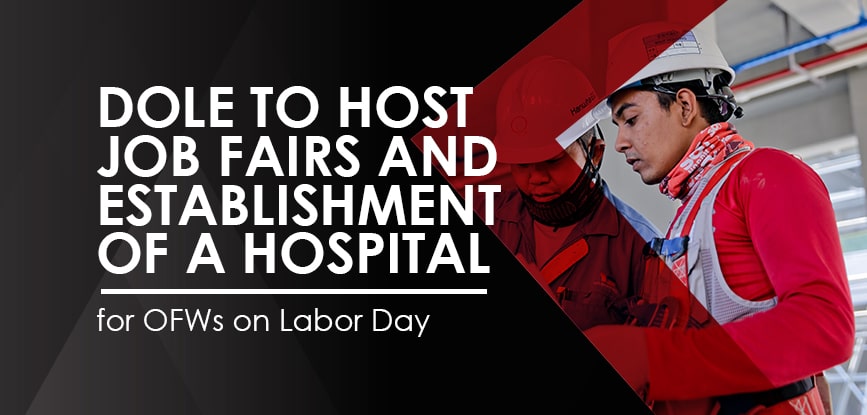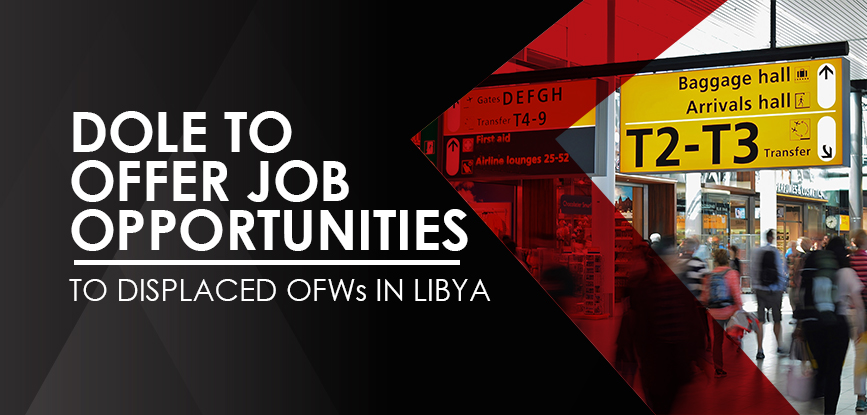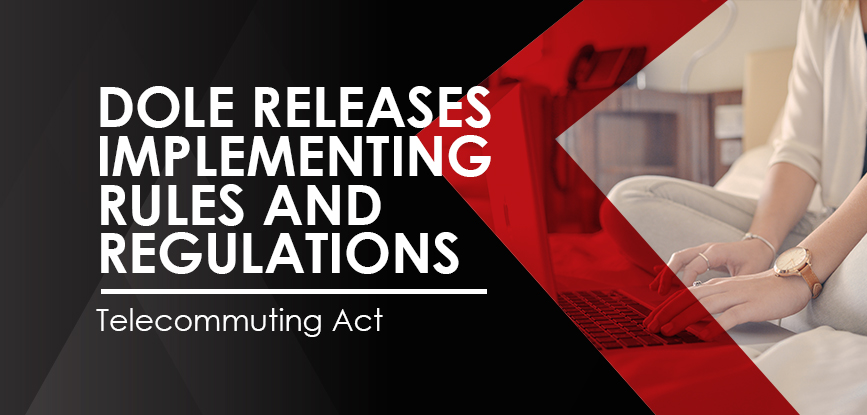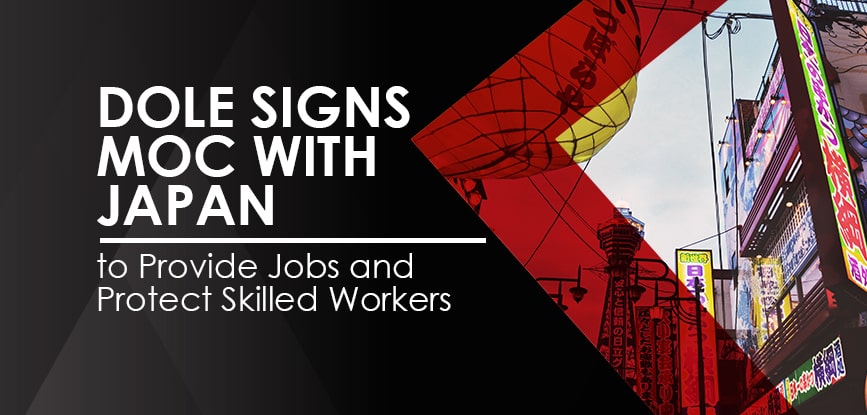The Department of Labor and Employment (DOLE) prepares for its celebration of Labor Day in the Philippines with a variety of job and business fairs and the announcement of the first-ever OFW Hospital.
Leandro Hulog
Job hunting can be challenging, especially when you grow stagnant for several months. To help you, we listed six effective strategies to improve your job hunting repertoire and increase your chances of securing employment in the Philippines.
Displaced Overseas Filipino Workers (OFWs) can receive alternative job opportunities through the efforts of the Philippine government in repatriating all Filipinos affected by the on-going Libyan Civil War and its increased tensions at Tripoli.
The Department of Labor and Employment (DOLE) issued on April 1 the Implementing Rules and Regulations (IRR) of Republic Act No. 11165, otherwise known as the “Telecommuting Act”. It was signed by DOLE Secretary Silvestre H. Bello III on March 26, 2019.
On March 22, the Department of Labor and Employment (DOLE) reached an agreement with the government of Japan through Department Order (DO) 201-19 in a bid to establish guidelines for the proper deployment of OFWs to Japan.
Flexible time arrangement at work is a common practice in the Philippines. Working hours in the country can vary depending on the discretion of the employer (provided they fall under local labor laws and industry standards).
Recruitment firms remain a viable choice for companies that want to expand their workforce. Clients acquire additional human resources to accomplish tasks generated by inquiries and services availed by clients. However, companies can’t always conduct the recruitment process on their own considering their tight schedules and the substantial amount of workloads.
As a job seeker, gathering experience from your current employer helps you improve and familiarize yourself with your job responsibilities, professional skills, and workplace environment.









